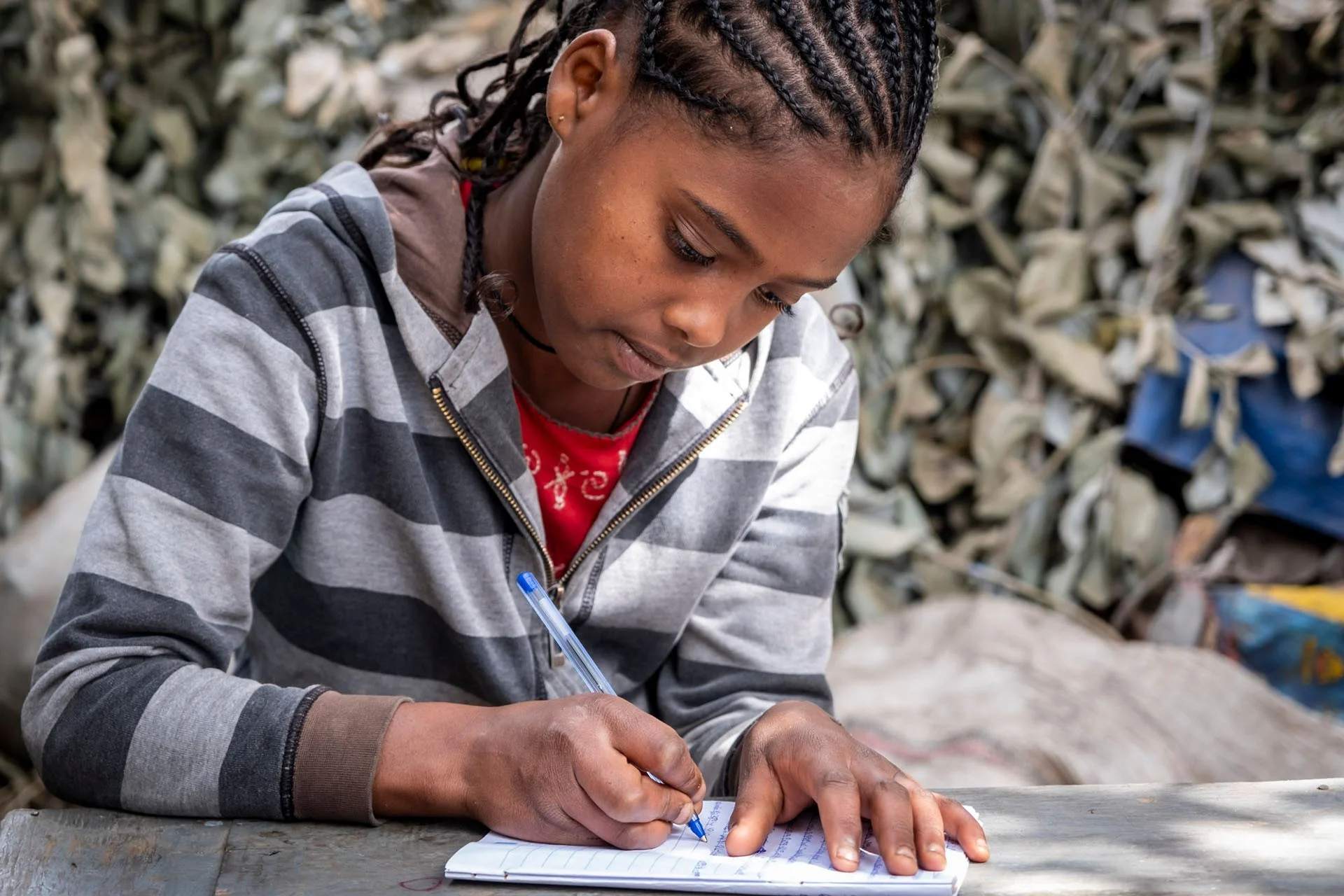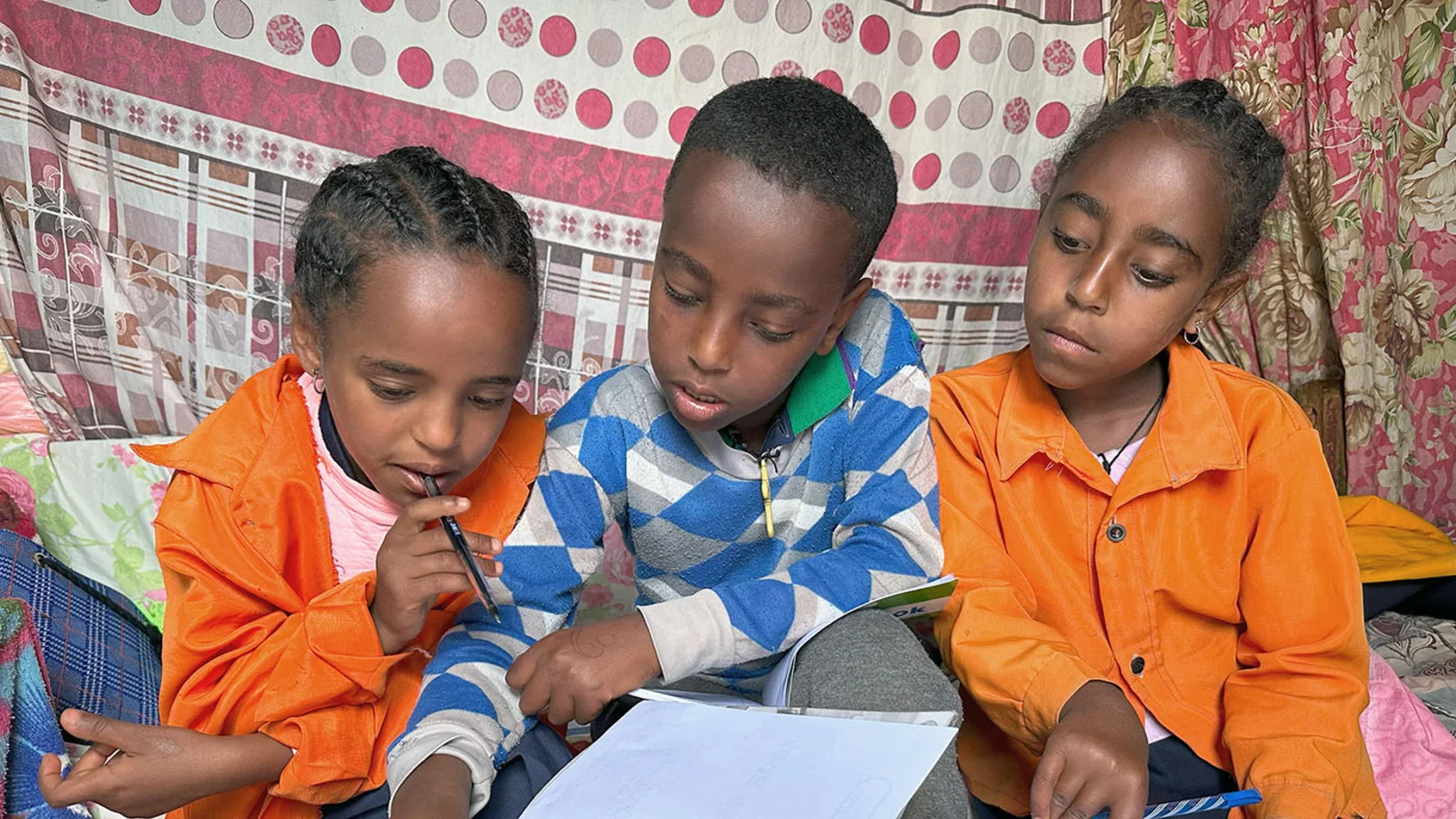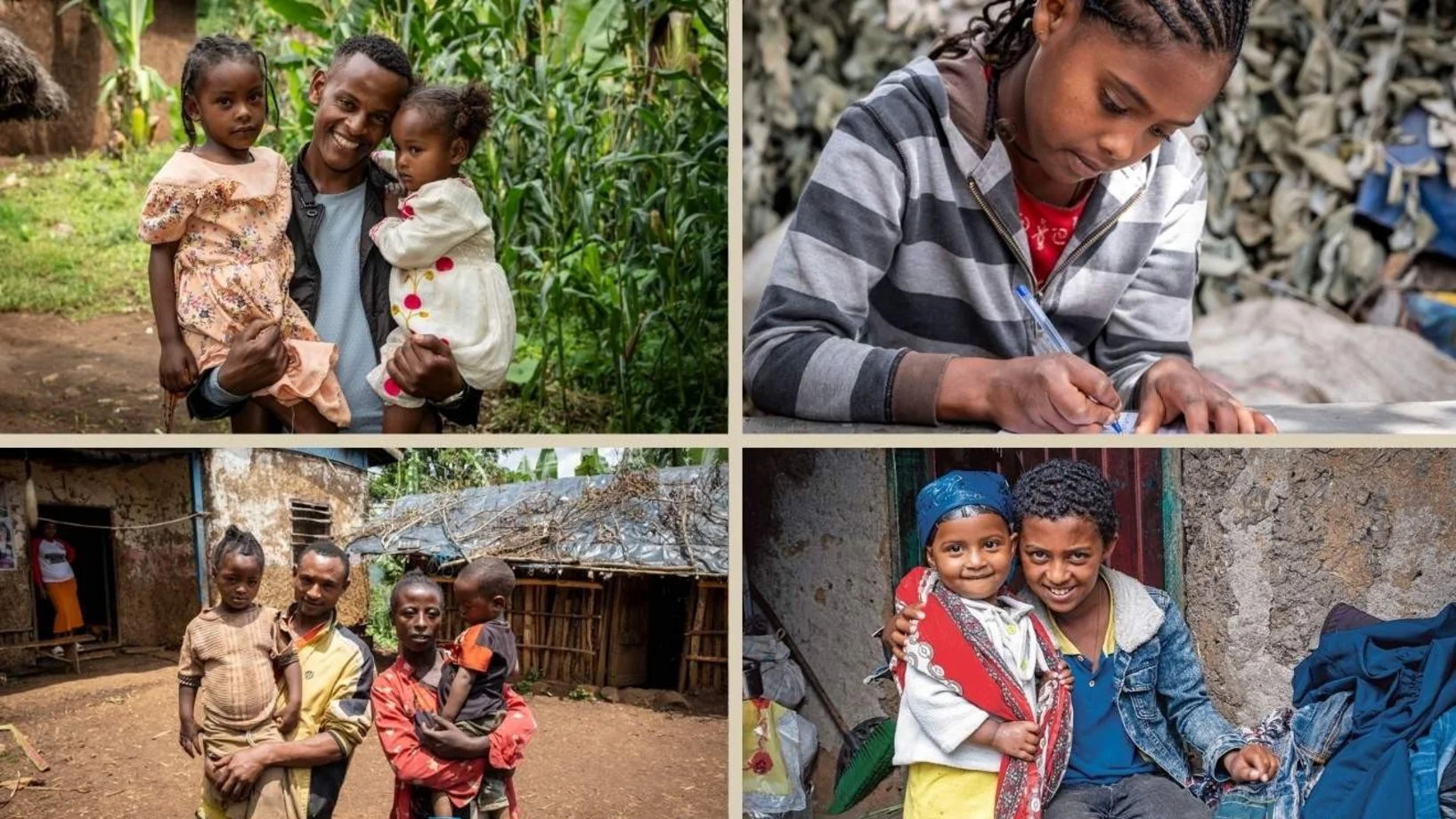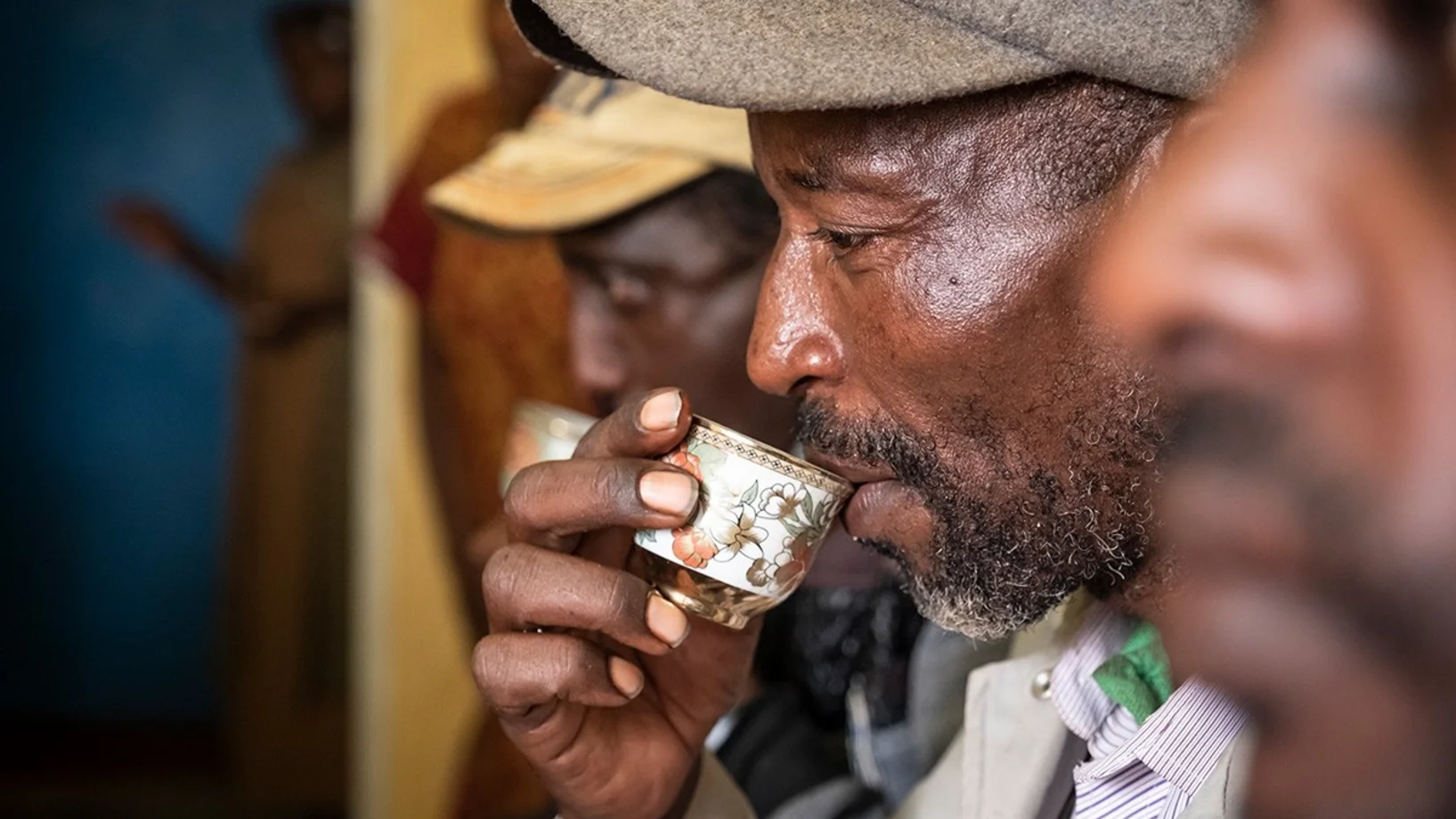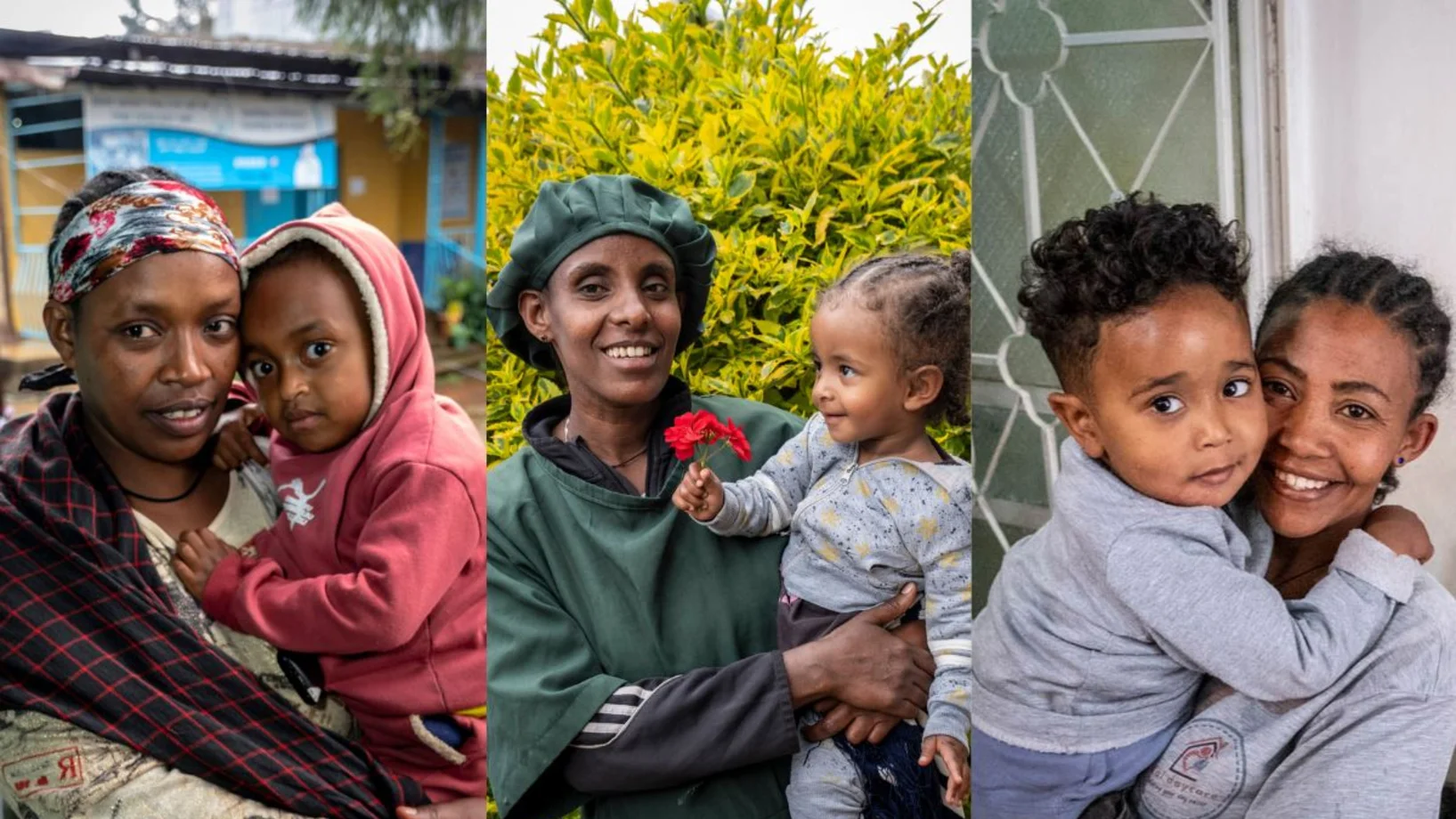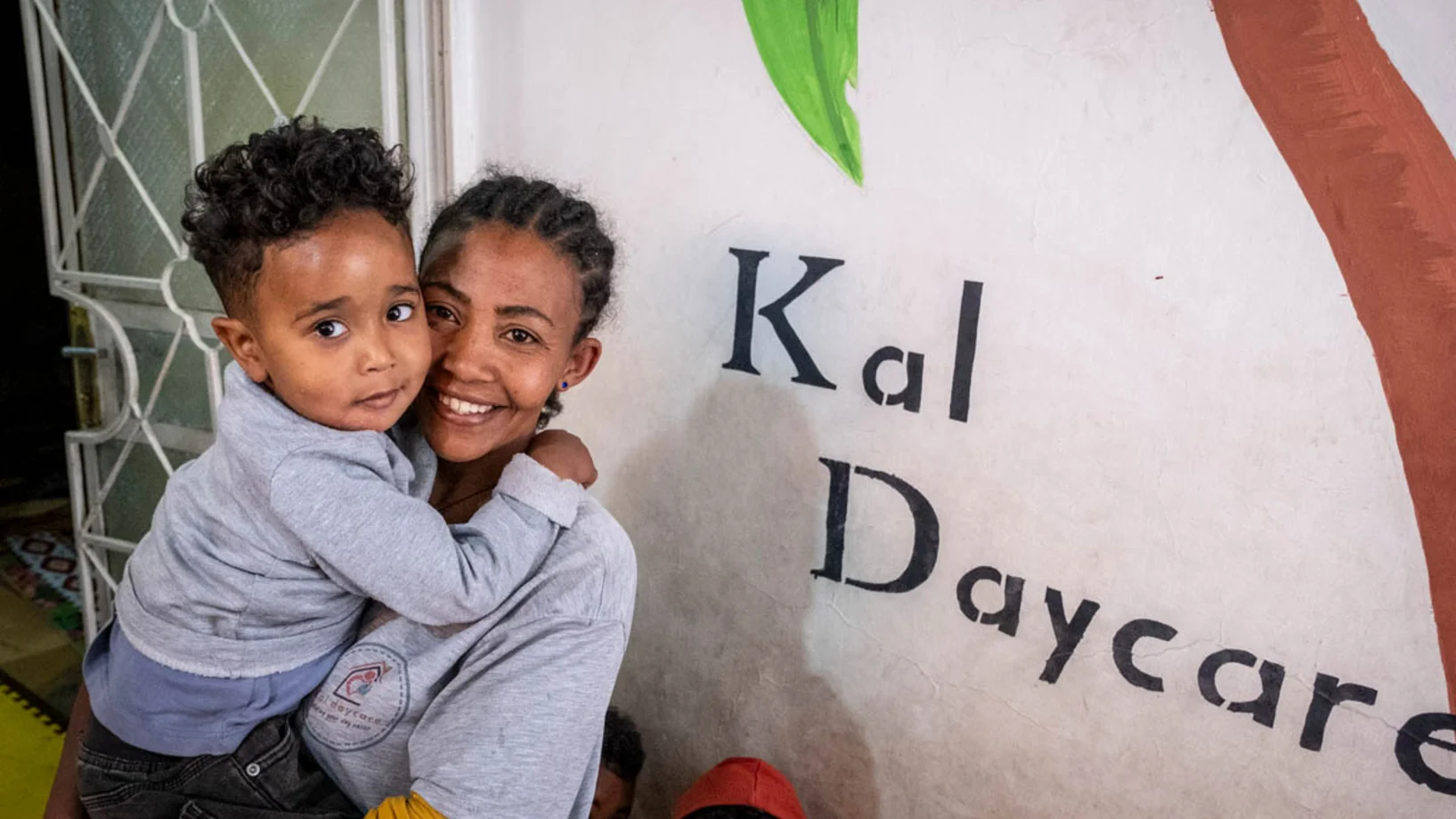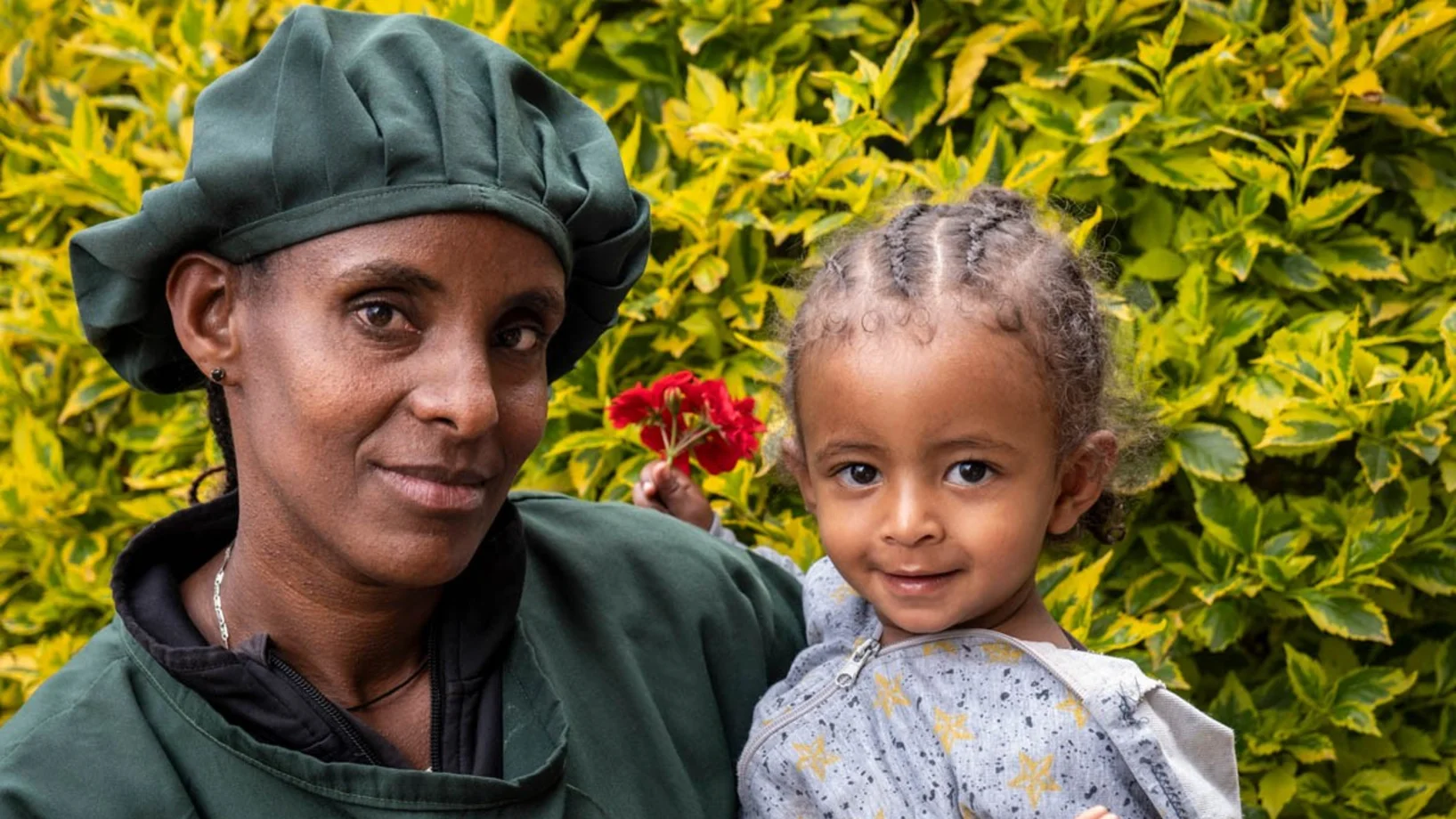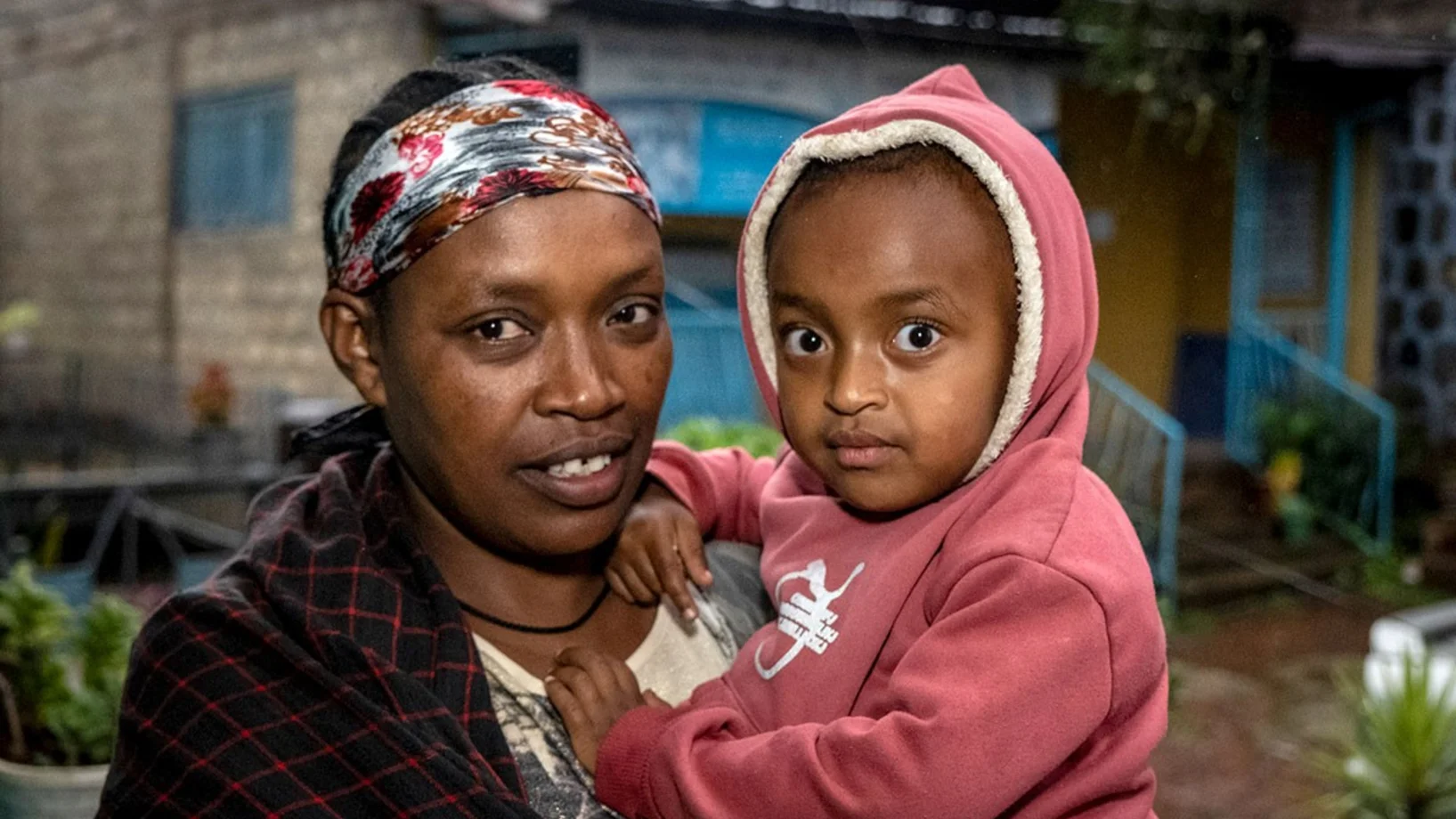A girl writes herself strong
Writing helps children sort through their experiences—and soothe their emotional wounds. In the slums of Debre Berhan, twelve-year-old Tebka's daily journal brings relief and courage.
A bare light bulb fights against the darkness in the windowless room. The corrugated iron walls, a bed, a stool, a wobbly table, a young cat chasing flies: This is the home of Tebka Endlbu, her sister, and her mother. She sits at the table and writes in her diary. "I write about how difficult our life has been. I write about how much I miss my father," says the twelve-year-old. "Dad is missing on the battlefield."
Her father fought in the civil war on the side of the government militias against the rebels from Tigray. With him, who earned enough money to make a living as a carpenter, security and regular meals disappeared: poverty took hold of the house without a caretaker.
Eine nackte Glühbirne kämpft gegen die Dunkelheit in dem fensterlosen Raum. Die Wände aus Wellblech, ein Bett, ein Schemel, ein wackliger Tisch, eine junge Katze, die nach Fliegen jagt: Das ist das Zuhause von Tebka Endlbu, ihrer Schwester und ihrer Mutter. Sie hockt am Tisch und schreibt Tagebuch. «Ich schreibe, wie schwierig unser Leben war. Ich schreibe, wie sehr ich meinen Vater vermisse», erzählt die Zwölfjährige. «Papa ist auf dem Schlachtfeld verschollen.»
Der Vater kämpfte im Bürgerkrieg auf Seiten der Regierungsmilizen gegen die Rebellen aus Tigray. Mit ihm, der als Zimmermann genug Geld für ein Auskommen verdiente, verschwand die Sicherheit und das regelmässige Essen: Die Not krallte sich fest im Haus ohne Hüter.
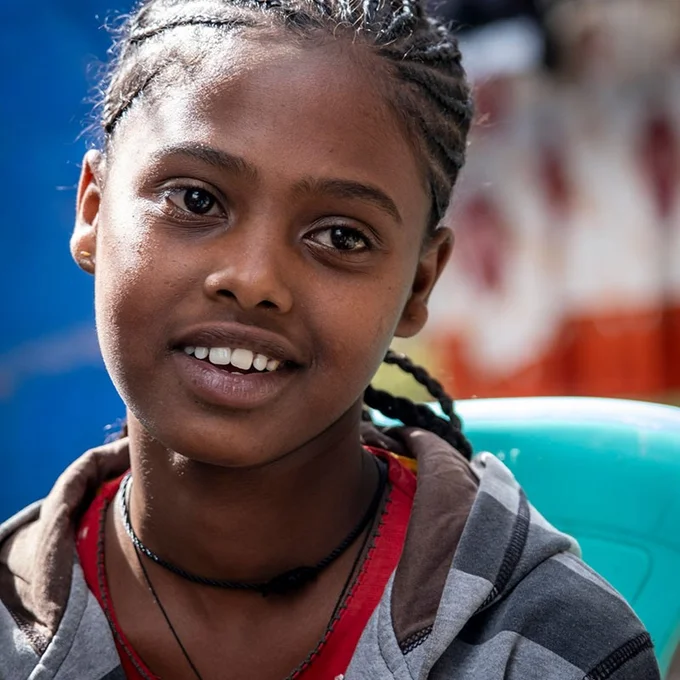
"I went to school hungry. I was so weak that I had to sit on a curb. My stomach growled loudly. I thought, 'What if the others hear the growling? Will they laugh at me?'"
Tebka, her 17-year-old sister, and her mother are among the poorest families in the city of Debre Berhan, which has a population of 150,000. They are mostly single mothers who try with incredible perseverance to raise their children. There is no money for school supplies, which is why children often drop out. Many mothers become discouraged and toil as day laborers with no prospect of escaping their misery.
Their despair shouldn't be passed on to the children. Menschen für Menschen provides holistic support to 1,800 children. One of its mainstays: self-help groups for mothers. They receive microcredits. They use these to set up food stalls, trade vegetables, raise chickens, and open shops. Tebka's mother also made the transition: She bought a washing machine and now runs a small laundry. Tebka's stomach no longer growls. But she often thinks back. And she misses her father.
"It's especially bad on holidays. On New Year's Day, we had to ask the neighbor to slaughter the chicken. My father always does that. But I don't have a dad anymore. That made me so sad. And angry. Why did he have to go to war?"
The social workers' home visits are crucial for children like Tebka. The specialists from Menschen für Menschen listen. In cases of acute illness, they ensure that the children receive treatment. If the children are dealing with trauma, the psychologically trained staff also provide support through conversations. They bring them notebooks and guide them to write about themselves: "The diary can be a source of comfort and a part of the process," explains social worker Martha Eshetu, who supports Tebka's family.
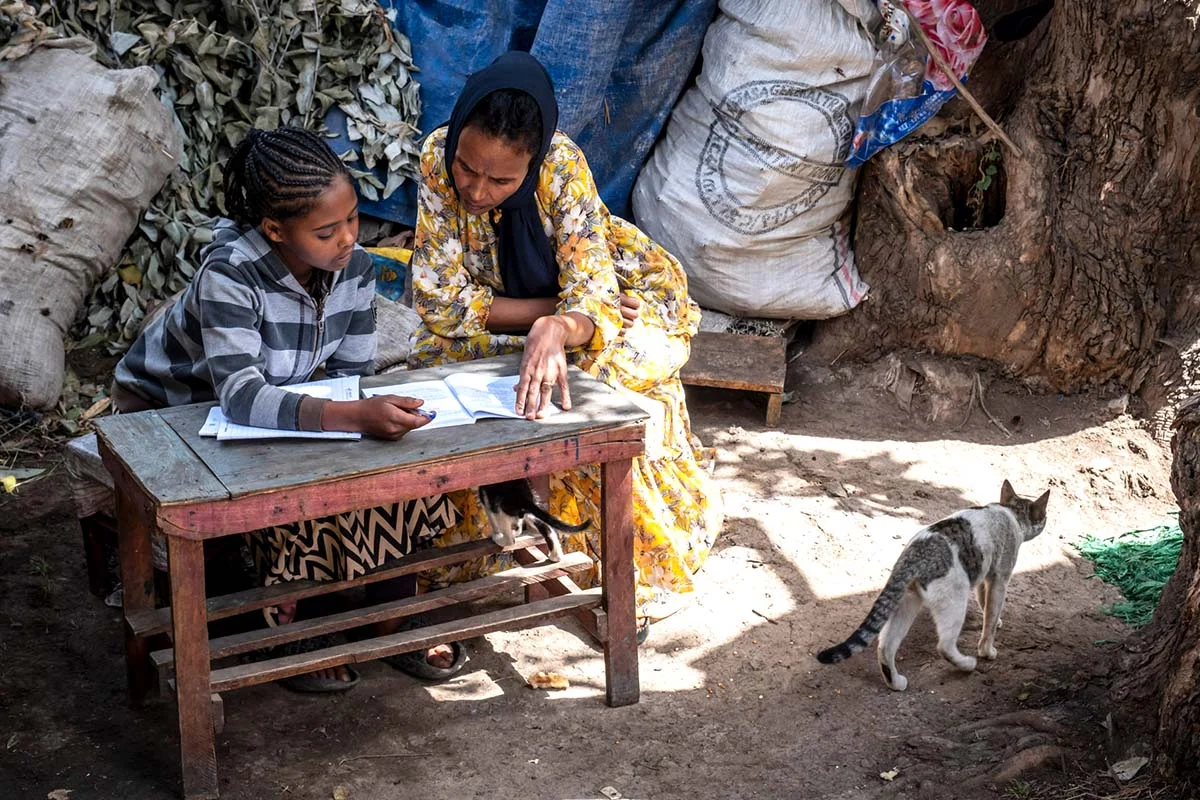
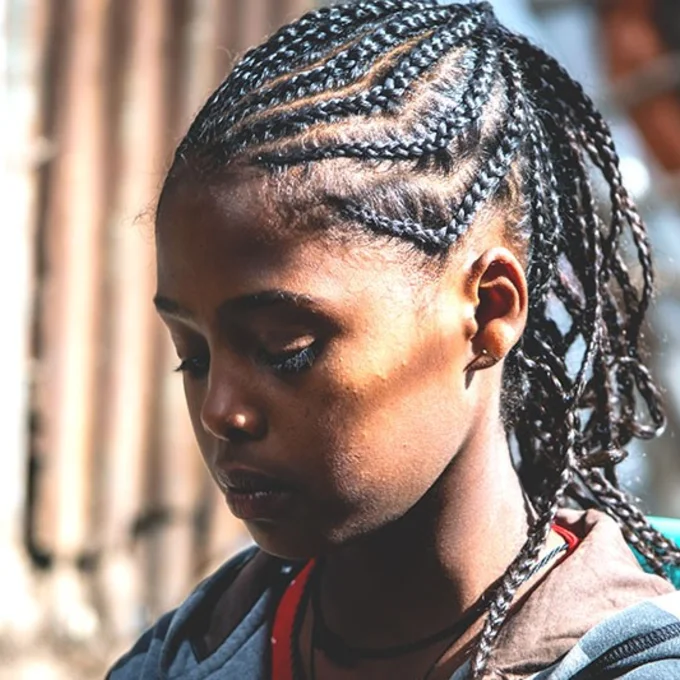
"I was at my friend's house. It was her birthday. She got new shoes. I'll be 13 soon. I wonder if I'll get a present too. The doubt makes me sad. So I write down my feelings. It's like talking to a friend: It makes me feel better. I'm getting good grades at school. If I keep studying hard, I'll have a good future. Martha says I'm smart and I can believe in myself!"
"No one who doesn't write knows how wonderful writing is," says the "Diary of Anne Frank." "I can shake off everything when I write; my worries disappear, my courage is reborn," the 14-year-old author noted. Those who write take their own story into their own hands. The words on paper create distance from their experiences and allow them to redefine their own role. The magic lies not only in expressing feelings, but also in shaping themselves and finding inner stability.
Tebka says social worker Martha is the most important person in her life after her mother and sister. The social worker brought her English and physics books and gave her tutoring. She taught her how to study most effectively. Tebka doesn't yet know where her path will lead her. But she has plans.
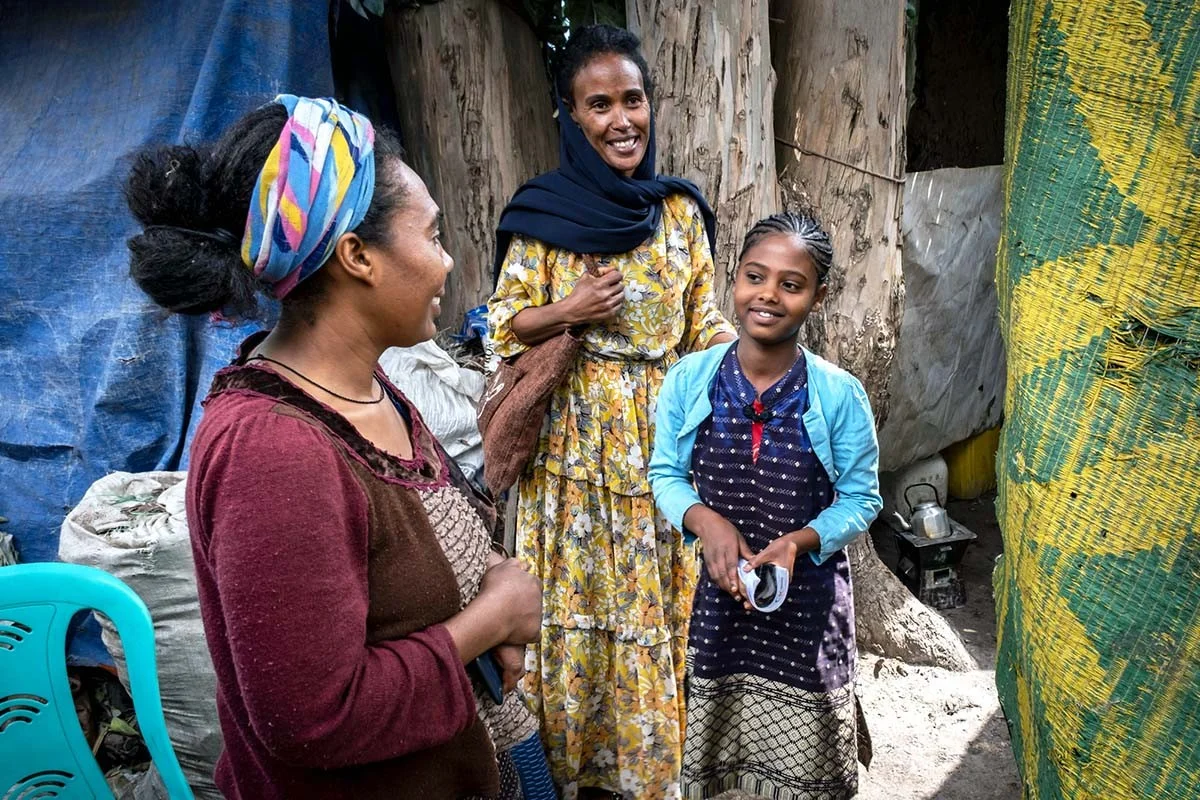
"I want to become a singer and appear on television. Then I'll earn a lot of money. I'll give it to my mother. We'll be happy."
Perhaps Tebka will pursue a different, less glamorous profession one day. One thing is certain: social worker Martha and the team at Menschen für Menschen will continue to help, so that children like Tebka can dream again.
Why we help
The poorest families in the city of Debre Berhan are mostly single mothers and their children. There is no money for school supplies. Food is scarce in the cramped accommodations. Many mothers are at the end of their strength. Therefore, we support the very poorest of these children and their mothers with our "Help for Self-Development" program.
What we do
Some of our activities:
- The children receive school uniforms, pens and notebooks – every child has the right to go to school!c. We build social housing using traditional clay construction methods.
- We train the mothers in self-help groups. They receive microcredits of between 80 and 200 Swiss francs.
- Our staff members provide a wide range of support in their daily lives. They provide expert advice to women on starting a small business.
- They also serve as confidants for the children in times of need. One activity among many is providing guidance on writing a diary.
What we achieve
The holistic concept is working: In the past three years, we have supported 663 families. We have helped 445 families achieve independence: Thanks to our start-up support, they are now managing on their own. We continue to help the remaining 218 families, along with additional families we are adding to the project. Starting this year, we have expanded the project to include 1,800 children from approximately 900 families.
Fifteen-year-old Dinkuwa also writes a diary. She shares some of her thoughts and experiences with our readers:
